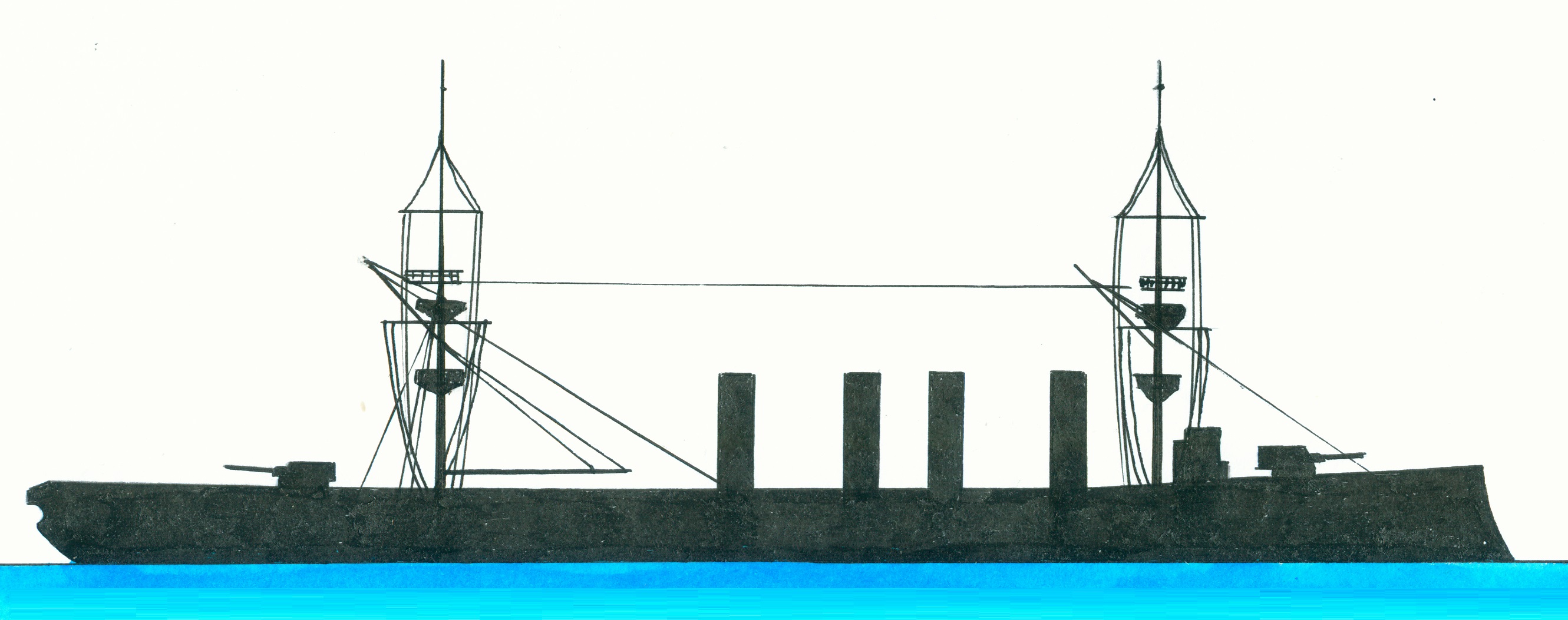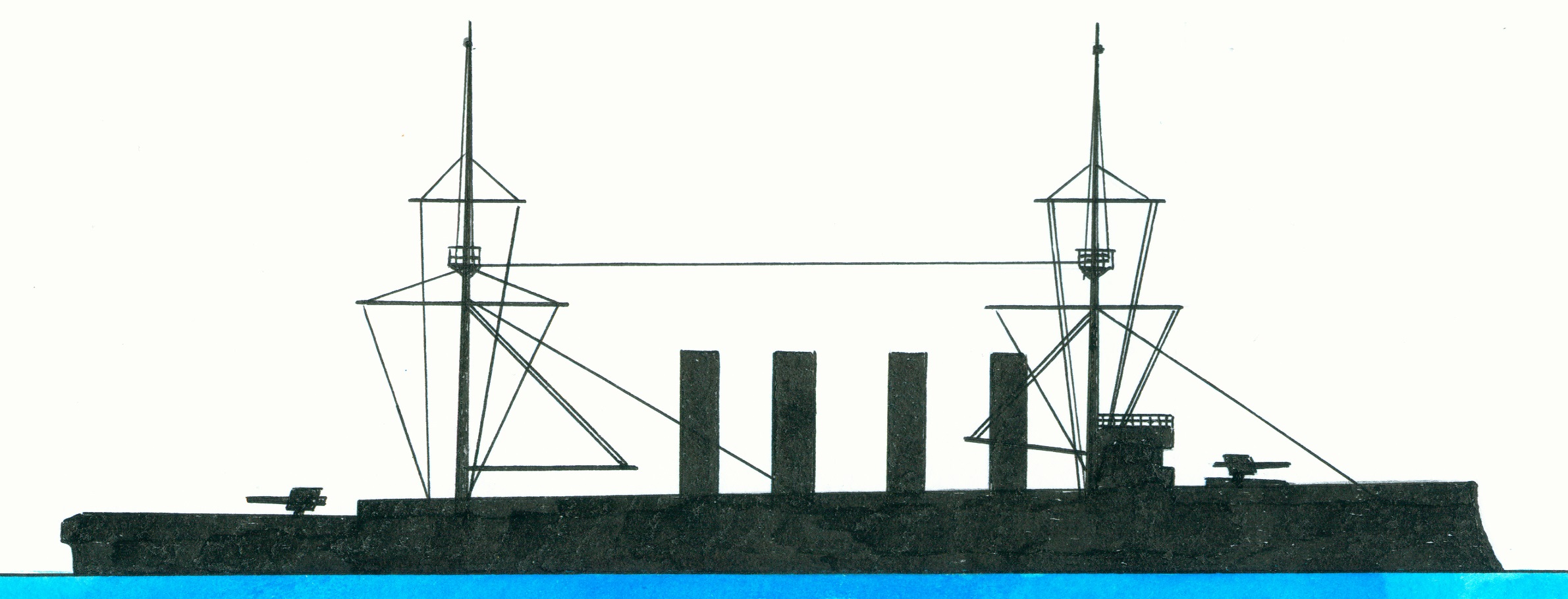Powerful-class
Diadem-class
Construction ordered under the 1895-1896 Estimates. Laid down at Vickers Limited, Barrow-in-Furness, England on 16 December 1895, launched on 20 February 1897, completed on 6 December 1898, acquired by the Royal Canadian Navy in January 1910, commissioned on 6 September 1910, depot ship at Halifax, Nova Scotia, Canada since September 1915 and sold to be broken up at Philadelphia, USA in 1922.
Part of the Diadem-class protected cruisers consisting of the Diadem, Amphitrite, Andromeda, Argonaut, Ariadne, Europa, Niobe and Spartiate, preceded by the Powerful-class and succeeded by the Cressy-class. Designed by Director of Naval Construction at the Admiralty (1885-1902) Sir William White (2 February 1845 Plymouth, England-27 February 1913 London, England) and in fact a simplified Powerful-class design with a reduced speed, horsepower, thickness of the protective deck and lighter armed. Their main task was protecting the merchant shipping and for this purpose the Diadem-class had to be strong enough to deal with all existing foreign cruisers.
General technical class specifications. Displacement 11.000 tons and as dimensions 132,6-140,97 (over all) x 21,0 x 7,7708,38 metres or 462.6-453 x 69 x 25.6-27.6 feet. Crew numbered 677 men. Armament consisted of 16x1-15,2cm/6” quick firing guns, 14x1-7,6mm/12pd quick firing guns, 3x1-4,7cm/3pd quick firing guns, 8 Maxim machineguns and 2-45cm/18” submerged torpedo tubes. The Harvey Nickel steel (except for the decks) armour consisted of casemates and gun shields with a thickness of 11cm/4.5”, hoists protected by 5,1cm/2”, the conning tube 5,1cm/2” (aft)-15cm/6” (tube fore)-30cm/12” (fore and further more 4cm/2,5”-10,2cm/4” thick decks. Machinery consisted of triple expansion steam engines and Belleville water tube boilers. Range with a speed of 19 miles and a coal bunker capacity of 1.900 tons was 2.000 nautical miles.


